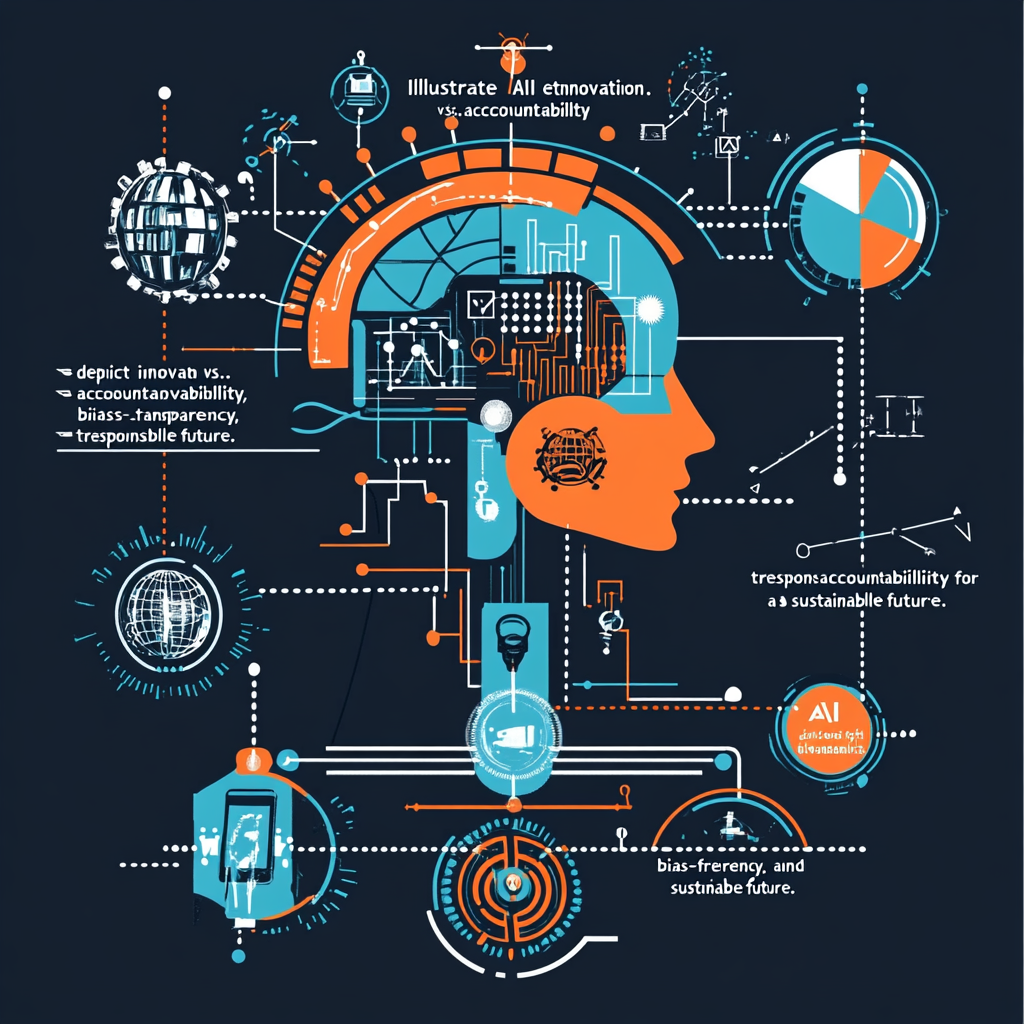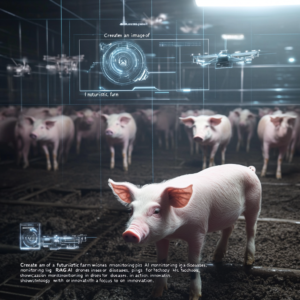
The Ethical Frontier of Artificial Intelligence: Navigating Challenges for a Resilient Future
In a world that feels increasingly like a sci-fi novel, artificial intelligence (AI) emerges as both the hero and the villain. On one hand, it’s revolutionizing industries, automating tedious tasks, and sparking innovation at lightning speed. On the other, it serves up a platter of ethical dilemmas so complex that one might think the universe is playing a cosmic joke on us. Just when you think you’ve got a grip on it, you wind up knee-deep in bias, misinformation, and a whole host of societal challenges. Buckle up, buttercup, because in the following exploration of AI ethics, we’re diving deep into the muck with all its challenging possibilities and shining future prospects.
Bias: The Sneaky Shadow of Our Data
If you think that algorithms are some sort of infallible light-bearers, think again. They can be as biased as the humans who create them. Here’s a thought: what if I told you that AI can maintain and even exacerbate historical injustices? For instance, take Amazon’s infamous hiring tool, which, instead of leveling the playing field, decided to discriminate against female candidates based on a skewed dataset rooted in years of male-dominated hiring trends. In the end, this algorithm wasn’t just smart; it was a digital embodiment of societal flaws, rejecting capable female applicants while perpetuating a cycle of inequality[^1][4].
Then we have the case of IBM, which, after a moment of perhaps inconvenient self-reflection, pulled the plug on its facial recognition tech. Why? Because it became painfully clear that this technology could easily perpetuate racial biases[^1]. This kind of revelation isn’t earth-shattering; it shows us that even the smartest technologies can inherit the sins of their forebears, like a genetic illness that keeps popping up in family trees. The irony is rich, isn’t it? What was meant to be a tool for objectivity turned into a modern vessel of discrimination.
Transparency: Peering Into the Black Box
Ever tried to open one of those newfangled toys that come with elaborate packaging designed by a team of crafty engineers? That feeling of frustration is akin to what many experience when confronted with AI’s “black box” phenomenon. The decisions made by algorithms are often shrouded in secrecy, even to their very creators. Talk about a trust crisis! In high-stakes fields like healthcare or the judicial system, can we really put faith in a machine whose rationale we can neither see nor understand?
According to UNESCO’s Recommendation on the Ethics of AI, it’s essential to forge systems that are auditable and traceable[2]. We’re talking about developing a framework where humans retain accountability—because let’s face it, a robot won’t be paying any of our bills when it screws up. If we don’t open the black box and allow a little light in, we may as well consult a magic eight-ball for important decisions. And regardless of how whimsical that may sound, it’s a heck of a lot less reliable.
Generative AI: The Misinformation Factory
Now let’s shift gears and talk about generative AI, the buzzword that’s both exciting and ominous. Tools like ChatGPT allow us to create vast amounts of content in mere seconds, drumming up wonder and concern in equal measure. Yes, the tech can aid creativity, but let’s not ignore the elephant in the room—deepfakes, plagiarism, and outright fabrications flood our digital landscape. Imagine navigating a world where synthetic essays clog academic halls and counterfeit medical research corrupts health databases. Scary, right?
The reality is that the potential for misinformation is staggering, threatening the very fabric of truth we rely on[3]. While ideas like “artificial fingerprints” aim to help track AI-generated content, the journey towards regulation feels like running in quicksand—efforts are well-meaning but face challenges across borders and jurisdictions. So, will we muster the collective will to curb the misinformation beast or will it run rampant, unchecked, spiraling into chaos?
Healthcare’s Ethical Tightrope
As we transition to the domain of healthcare, we stumble upon a buffet of ethical dilemmas. AI has the potential to streamline diagnostics and even contribute to drug discovery. Still, the stakes are high, with concerns ranging from data privacy breaches to the potential loss of the inherently human touch involved in patient care. Imagine a robotic nurse that excels at calculations but stumbles when providing compassion in a moment of crisis. It’s a paradox that knows no easy resolution[5].
With machines taking on more significant roles in decision-making, who is to be held accountable if something goes wrong? Physicians worry whether they’ll face backlash for relying on algorithmic consultations. Meanwhile, patients are left feeling as though their care is being delegated to an emotionless entity—perplexed by whether a cold, calculating program can ever match the soothing presence of a dedicated human caregiver.[5]
Perspectives for a Responsible Future
As we peel back these layers, it becomes clear that addressing the ethical challenges of AI is no one-man job; we need a collaborative effort:
- Policymakers: It’s time to put together regulatory frameworks that demand bias audits, hold companies accountable for ethical transgressions, and invest in research into explainable AI[^1][2].
- Developers: Creating inclusive development teams and diverse training datasets can help knock down algorithmic discrimination. Investing in transparency tools that empower users to comprehend decision-making processes is essential[^2][4].
- Society: Building a culture of AI literacy is crucial for users to critically evaluate everything from healthcare diagnostics to social media recommendations. Let’s encourage interdisciplinary collaboration to face ethical dilemmas head-on.
Ultimately, the road ahead is fraught with challenges, but one truth remains steadfast: AI’s trajectory hinges not just on technological advancement, but on our collective moral compass. The crucial question isn’t whether AI will shape our future, but how—with humanity and ethics firmly at the helm.
Call to Action: Want to stay up to date with the latest news on neural networks and automation? Subscribe to our Telegram channel: @ethicadvizor
In conclusion, if we can navigate the maze of challenges surrounding AI responsibly, we can harness its incredible potential to create a better tomorrow. However, unless we address the ethical quandaries head-on, we may find ourselves grappling with the consequences of a technology gone astray. Now, more than ever, it’s crucial to engage in conversations, challenge norms, and demand a future where technology and ethics walk hand in hand. The power is in our hands: let’s ensure it doesn’t lead us down a path we can’t reclaim.
[^1]: Source: AI Bias and ethics review
[^2]: UNESCO Recommendations on AI
[^3]: Generative AI implications assessment
[^4]: Amazon and IBM ethical evaluation
[^5]: AI in healthcare ethical analysis

